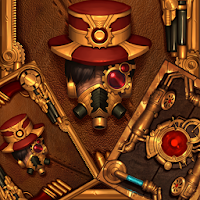"Assassin's Creed: 10 Historical Twists"
Ubisoft has once again activated the Animus, this time transporting players to Japan's tumultuous Sengoku Period with Assassin's Creed Shadows. Set in 1579, the game features historical figures like Fujibayashi Nagato, Akechi Mitsuhide, and the African samurai Yasuke, who served Oda Nobunaga. As with previous entries in the series, these real-life characters are intricately woven into a narrative that blends fact and fiction, crafting a tale filled with themes of revenge, betrayal, and murder. While the game may humorously suggest that Yasuke had to rack up XP to wield a gold-tier weapon, it's clear that Assassin's Creed is firmly rooted in the genre of historical fiction.
The Assassin's Creed series is renowned for its commitment to crafting immersive open-world environments based on meticulous historical research. However, it's crucial to recognize that these games are not intended as history lessons but rather as engaging narratives that enhance gameplay by altering historical events to fit their overarching plot. The series has a tradition of filling historical gaps with imaginative storytelling, often centered around a science fiction conspiracy involving a secret society seeking to control the world using the mystical powers of a pre-human civilization.
While the list of historical inaccuracies in Assassin's Creed is extensive, here are ten standout moments where the series has boldly rewritten the past:
The Assassins vs Templars War

One of the most fundamental aspects of the Assassin's Creed narrative is the ongoing conflict between the Assassins and the Templars. However, there is no historical evidence to support the idea that the Order of Assassins, founded in 1090 AD, was ever at war with the Knights Templar, established in 1118. Both groups existed during the Crusades and were disbanded by 1312, but any ideological opposition between them is purely a creation of the game's fiction.
The Borgias and their Superpowered Pope

In Assassin's Creed 2 and Brotherhood, the protagonist Ezio faces off against the Borgia family, with Cardinal Rodrigo Borgia portrayed as the Templar Grand Master. In the game, he becomes Pope Alexander VI and aims to control humanity with the Apple of Eden. Historically, the Templars did not exist in the late 1400s, and the Borgias, while controversial, were not the nefarious villains depicted in the game. The portrayal of Cesare Borgia as a psychopathic leader is based on rumors rather than solid evidence.
Machiavelli, Enemy of the Borgias

Assassin's Creed 2 and Brotherhood cast Niccolò Machiavelli as Ezio's ally and leader of the Italian Assassins. However, Machiavelli's real-life philosophies on strong authority clash with the Assassin's Creed's anti-authoritarian stance. Moreover, historical records show that Machiavelli viewed the Borgias, particularly Cesare, in a more favorable light than the game suggests.
The Incredible Leonardo da Vinci and his Flying Machine

Assassin's Creed 2 showcases a close relationship between Ezio and Leonardo da Vinci, accurately capturing da Vinci's charisma. However, the game takes liberties with da Vinci's movements, placing him in Venice in 1481 when he actually moved to Milan in 1482. While the game brings da Vinci's innovative designs to life, such as a machine gun and tank, there's no evidence these were ever built. The highlight, though, is Ezio's use of da Vinci's flying machine, which, while inspired by his sketches, never flew in reality.
The Bloody Boston Tea Party

The Boston Tea Party, a pivotal event in the American Revolution, was a peaceful protest with no casualties. Assassin's Creed 3, however, transforms it into a violent confrontation, with protagonist Connor single-handedly taking down multiple British guards. The game also suggests that Samuel Adams orchestrated the protest, a claim that historians debate due to inconclusive evidence.
The Lone Mohawk

In Assassin's Creed 3, Connor, a Mohawk, fights alongside the Patriots against the British, despite historical records showing the Mohawk were allies of the British during the Revolutionary War. While there were rare instances of Mohawks siding with the Patriots, such as Louis Cook, Connor's allegiance represents a significant deviation from historical norms.
The Templar Revolution

Assassin's Creed Unity's portrayal of the French Revolution attributes the uprising to a Templar conspiracy, suggesting the monarchy and aristocracy were victims rather than instigators. The game simplifies the complex causes of the revolution, including famine, into a plot orchestrated by the Templars, which is historically inaccurate.
The Controversial Killing of King Louis 16

Assassin's Creed Unity dramatizes the execution of King Louis 16, portraying the vote for his execution as a close call swayed by a single Templar vote. In reality, the vote was decisively in favor of execution, with 394 to 321. The game also overlooks the King's attempt to flee France and his subsequent tarnished reputation among the populace.
Jack the Assassin

Assassin's Creed Syndicate reimagines Jack the Ripper as a rogue Assassin seeking to control the London Brotherhood. In the game, he is trained by Jacob Frye and turns the organization into a criminal gang. This narrative twist leverages the mystery surrounding the real Jack the Ripper, whose identity and victim count remain unknown to this day.
The Assassination of the Tyrant Julius Caesar

Assassin's Creed Origins reinterprets the assassination of Julius Caesar, presenting him as a proto-Templar whose death is necessary to prevent global tyranny. The game ignores many historical facts, including Caesar's actual reforms aimed at helping the poor and retired soldiers. The portrayal of his assassination as a victory against tyranny overlooks the subsequent civil war and the rise of the Roman Empire.
The developers at Ubisoft go to great lengths to create games that are rich with historical elements, but these are often creatively altered to suit the game's narrative. This is the essence of historical fiction, and while it may not be a perfect reflection of history, it provides an engaging and immersive experience. What are your favorite instances of Assassin's Creed bending historical truth? Share your thoughts in the comments below.
Latest Articles















![Roblox Forsaken Characters Tier List [UPDATED] (2025)](https://ima.hhn6.com/uploads/18/17380116246797f3e8a8a39.jpg)















